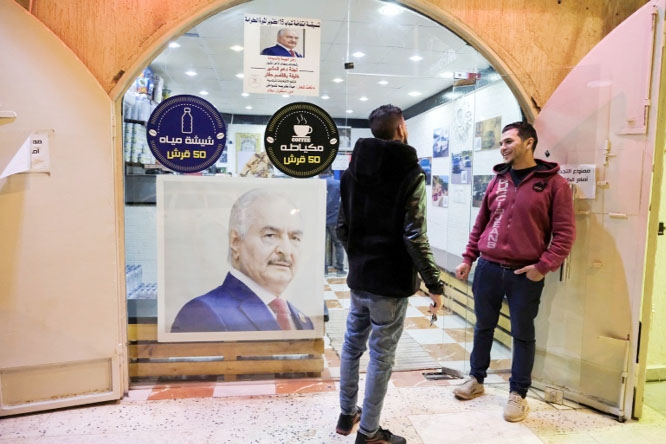
Al Jazeera :
Libyans have reacted with a mix of anger and hopelessness after authorities announced the postponement of a crucial presidential election initially scheduled to take place on Friday.
The electoral commission on Wednesday suggested the vote – aimed at ending a decade of chaos in the country – be pushed back by a month, owing to a lack of preparedness and disagreements between various political forces on the legal basis of the poll.
Mohammed al-Wafi, a resident of the capital, Tripoli, could not hide his dismay as he affirmed that the Libyan people were “thirsty” for the elections.
“We refuse to postpone the elections. I am talking about the opinion of the entire Libyan street. We, as citizens of the south [region], support holding the elections on time, frankly,” al-Wafi said.
The electoral board has suggested pushing the vote back by a month to January 24, but given the animosity between the eastern-based parliament and authorities in Tripoli, agreeing on a new date will be far from easy.
Some 2.5 million Libyans had collected their voter cards, out of a population of seven million.
But the vote has been made complicated by a deepening rift between the rival leadership that emerged in the country’s east and west following the NATO-backed uprising that removed longtime ruler Muammar Gaddafi in 2011.
To start with, there is Speaker Aguila Saleh’s insistence that Libya first proceed with a presidential vote before parliamentary elections can take place.
Critics hold that Saleh, who heads the eastern-based House of Representatives and is running for president, views the vote as a winner-take-all contest.
This is a prospect that has unsettled many Tripoli residents, including Ahmed Baiyed, who said the vote could have resulted in a president whose powers would be ambiguous in the absence of a constitution.
“I’m happy the presidential elections aren’t happening. To hold elections, you have to have a foundation. Our foundation is a constitution,” Baiyed told Al Jazeera.
“If we don’t have a constitution that identifies what kind of governing system we have, and the powers a president has, how can we vote for a president?”
This was a view shared by Othman al-Amari, who regretted that parliament has been unable to deliver after many years in power.
“We need to have parliamentary elections first, and then a presidential one,” he said. “The parliament has been in power for several years and they haven’t done anything.”
Libyans have reacted with a mix of anger and hopelessness after authorities announced the postponement of a crucial presidential election initially scheduled to take place on Friday.
The electoral commission on Wednesday suggested the vote – aimed at ending a decade of chaos in the country – be pushed back by a month, owing to a lack of preparedness and disagreements between various political forces on the legal basis of the poll.
Mohammed al-Wafi, a resident of the capital, Tripoli, could not hide his dismay as he affirmed that the Libyan people were “thirsty” for the elections.
“We refuse to postpone the elections. I am talking about the opinion of the entire Libyan street. We, as citizens of the south [region], support holding the elections on time, frankly,” al-Wafi said.
The electoral board has suggested pushing the vote back by a month to January 24, but given the animosity between the eastern-based parliament and authorities in Tripoli, agreeing on a new date will be far from easy.
Some 2.5 million Libyans had collected their voter cards, out of a population of seven million.
But the vote has been made complicated by a deepening rift between the rival leadership that emerged in the country’s east and west following the NATO-backed uprising that removed longtime ruler Muammar Gaddafi in 2011.
To start with, there is Speaker Aguila Saleh’s insistence that Libya first proceed with a presidential vote before parliamentary elections can take place.
Critics hold that Saleh, who heads the eastern-based House of Representatives and is running for president, views the vote as a winner-take-all contest.
This is a prospect that has unsettled many Tripoli residents, including Ahmed Baiyed, who said the vote could have resulted in a president whose powers would be ambiguous in the absence of a constitution.
“I’m happy the presidential elections aren’t happening. To hold elections, you have to have a foundation. Our foundation is a constitution,” Baiyed told Al Jazeera.
“If we don’t have a constitution that identifies what kind of governing system we have, and the powers a president has, how can we vote for a president?”
This was a view shared by Othman al-Amari, who regretted that parliament has been unable to deliver after many years in power.
“We need to have parliamentary elections first, and then a presidential one,” he said. “The parliament has been in power for several years and they haven’t done anything.”

